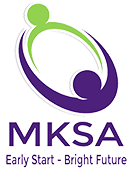Refers to the production of speech sounds resulting from the movements of the lips, jaw and tongue as they modify the flow of air.
Archives: Terms to Know
Applied Behavior Analysis (ABA)
A scientific approach to behavior. It is a specific, highly structured technique for analyzing the causes and effects of behavior with the goal of teaching and learning socially and academically appropriate behavior.
Apraxia
Difficulty sequencing the motor movements necessary for volitional speech.
Aphasia
Inability to acquire meaningful spoken language by the age of three, usually resulting from damage or disease to the brain.
Annual Review
An evaluation, conducted annually which may or may not include formal testing, by the Committee of Special Education, to review the past school year and plan for the next one. The purpose is to recommend continuation, modification, or termination of the special education services and programs.
Advocate (Advocacy)
An individual who is not an attorney, but who assists parents and children in the dealings with the child’s special education program.
Adaptive Behavior
A child’s adjustment to change, and development of self-help skills such as feeding, toileting and dressing.
Activities of Daily Living (ADL)
Tasks normally done in daily living, including any activity for self-care such as feeding, bathing, dressing and grooming.
Service coordination
A service coordinator helps the family navigate the EI system, provides education or services available, secures a child’s services in EI, ensures they are being delivered as outlined in the IFSP, and conducts monthly contact with family to ensure services are going well.
Parent training (CPSE)
Teaches parents and caregivers strategies for helping their child achieve success in daily activities.
